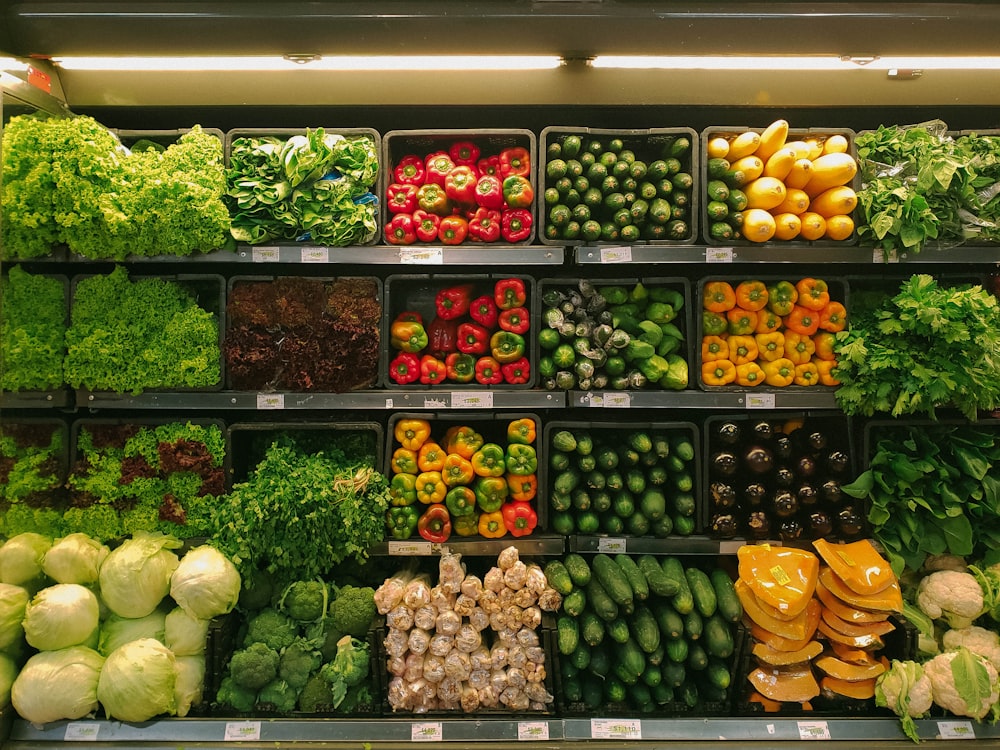
For the most part, avoiding heavy metals in food is for the best. Some heavy metals are very dangerous, and others are good for us in small amounts. Avoiding large amounts of heavy metals in foods is what’s safe.
Heavy metals are naturally present in the environment. Some of these metals include trace elements that are vital for organisms. For example, small quantities of zinc, iron, selenium, or iodine are suitable for human beings since they regulate bodily functions. For example, zinc boosts immunity, iron makes hemoglobin, selenium serves as food for the brain, and iodine plays a big part in the thyroid function.
However, toxic heavy metals (meaning those that are dense, heavy, and found in the earth’s crust) can adversely impact health. The FDA is particularly concerned about our consumption of the dangerous heavy metals including arsenic, cadmium, lead, and mercury. For example, lead can lead to impaired brain development in children, cadmium can cause kidney disease or cancer, and inorganic arsenic can result in diabetes, heart disease or cancer.

Heavy Metals in Food from Contamination
Exposure to heavy metals in food is very much a concern for pregnant and breastfeeding women. After all, they can pass these toxic metals to the fetus through the placenta and via breast milk. And the fetus and babies are more susceptible to these hazardous materials because of their immature immune system. On top of that, babies and toddlers in the weaning process are at risk because heavy metals are detected in commercial baby foods (both organic and non-organic).
Unfortunately, modern human activity has also led to much higher exposure with elevated heavy metal levels in the environment. These harmful compounds infiltrate the human body through contaminated groundwater or food. Heavy metals in food can be consumed from contamination.
Did you know that you can be consuming heavy metals in food through the consumption of vegetables? This is because vegetables can absorb heavy metals from the soil or packaging materials, especially if you’re not buying organic vegetables. Contaminants can also be found in the air coming from industrial plants that release particulate matter into the atmosphere.
On top of that, exposure can also occur from an accumulation of simple products that are rich in heavy metals. For instance, makeup, skincare products, nail polish, and deodorants can contain heavy metals that penetrate through the skin’s pores. To illustrate, deodorants contain a lot of aluminum salts to prevent sweat formation. Unfortunately, though it guarantees dry armpits, aluminum clogs pores and causes irritation. Worst of all, it can enter your bloodstream through very tiny injuries created after shaving, which studies state can contribute to breast cancer development.
Although it is impossible to completely escape heavy metals in your daily life, you can avoid more exposure to these harmful substances by paying close attention to your diet. Watching what you put in your mouth minimizes your risk against these toxic substances. Here’s how you can avoid heavy metal contaminants in the food you eat.
Be Mindful of Wild Mushroom Consumption
Mushrooms are considered healthy because they’re low in calories and have anti-inflammatory properties. However, you must be very wary of consuming the wild variant. That’s because wild mushrooms may contain many heavy metals that they absorb and accumulate from contaminated soil where they grow. Those mushrooms that thrive in industrial areas are the most loaded in heavy metals.
For instance, birch boletes and button mushrooms harvested in the wild can have a very high cadmium content. Similarly, wild white porcini mushrooms may contain a lot of mercury or lead. All of these heavy metals in food such as wild mushrooms could eventually collect in your body, becoming harmful for your health.
Should you wish to continue enjoying wild mushrooms, you must learn proper preparation techniques. Make it a point to remove the pileipellis or the outer peel of the mushroom, which is the part that’s most exposed to metals. Make it a habit to do this before cooking and consuming wild mushrooms. In general, it’s safest to avoid wild mushrooms altogether.
Be Cautious with Beverages and Foods in Aluminum Cans or Pouches
Typically, the beverages and food items you buy packed in aluminum cans or pouches are deemed safe for consumption. That’s because the inside of the aluminum can is typically coated to prevent the liquid or solid particles from coming in contact with aluminum. However, this coating contains an industrial chemical called BPA. This harmful chemical can be activated and released in your beverage or food under certain circumstances. Heat exposure is a typical culprit that results in BPA breakdown and eventual contamination, so store your canned sodas in a cool area.
As an example, one study shows that people who consume drinks from aluminum cans have elevated blood pressure within just a few hours. You must be mindful of this information, especially if you have comorbidities like hypertension or heart disease. For best results, stick to glass bottles or cardboard pouches. The less metal exposure you have, the better for your health. Preventive habits like this can make a big difference in the long run.

Choose Organic Foods
To avoid heavy metals in food, many people opt to buy organic vegetables and foods. Organic farming bans the use of chemicals and synthetic pesticides. As a result, your food will contain more antioxidants and fewer heavy metals. In general, organic food is said to contain 68% less cadmium. Besides, implementing this kind of diet has positive long-term health effects because organic items generally don’t contain harmful toxins, preservatives, and additives.
That being said, airborne fine dust particles like lead can still contaminate food. Therefore, you must thoroughly wash all fruits and veggies from the store. Stay vigilant with this practice if you have stomach issues. Notably, studies show that people with poor gut health are more susceptible to heavy metals. For example, if you’ve got a leaky gut, the metals can readily penetrate your bloodstream infiltrating cells, tissues, and even the brain. One of its adverse consequences is the development of mental health issues.
Heavy Metals in Food via Seafood Consumption
Mercury often originates in the sea. You can easily find this element in large, predatory fish because they live longer than smaller organisms. As a result, they have a more prolonged exposure to mercury in the water and accumulate more of this element throughout their lifespan. For this reason, you must guard against mercury content, especially from the the following fish:
- Tuna
- King mackerel
- Marlin
- Swordfish
- Tilefish
- Shark
- Orange roughy
If you feel concerned about mercury poisoning, consume seafood with care. If you follow the pescatarian diet, it would be prudent to consult with your doctor, especially if you are trying to conceive or are breastfeeding. More importantly, stick with organic sources caught in the wild and avoid the canned variants or artificially raised fish in commercial farming pens.
Consume Bone Broth in Moderation
Bone broth is a trendy ingredient for nourishing the skin, restoring collagen, promoting gut health, and lowering inflammation. However, when animals are exposed to certain metals, especially lead, they store these contaminants in their bone materials. And this ingredient is at the heart of bone broth.
For example, one study showed that there were high concentrations of lead in bone broth. However, this does not mean you must now avoid bone broth altogether. Like anything in your diet, consume it with care by using the best sources in the market and eating in the broth in moderation.

Source Rice Carefully
Young kids are at high risk for arsenic exposure, which can lead to diabetes, kidney disease, heart problems, and brain development issues. Typically, rice cereal is the first source of nutrition for kids who are weaning. But because of the possibility of inorganic arsenic exposure, rice must not be their only solid food source. You must include barley, multi-grains, and oats for your young kids. Rice is very efficient in absorbing arsenic from soil ladened with pesticides, contaminated irrigation water, and even toxic cooking water.
If you are an adult who eats rice, it would be best to defer to this Consumer Reports Index regarding which rice variant contains the heaviest metals. The most important takeaway from this report is that white basmati rice grown in India, Pakistan, and California, as well as sushi rice from the US are the best sources. These rice variants contain only half of the inorganic arsenic found in other types of rice.
Consider Installing a Water Filter
If you want to avoid heavy metals, consider installing a water filter in your home’s plumbing system, or at least using a Brita filter. Because of industrialization, there’s a lot of heavy metal contamination in groundwater, which can be filtered out with a water filter. Many areas have elevated heavy metal content in tap water. Consequently, the human body is exposed to more significant concentrations when they bathe, brush teeth, use water for food preparation, or utilize tap for water drinking.
This is especially dangerous for older homes and commercial properties where piping is made out of lead and copper. As the water passess through these old pipes, it inevitably absorbs harmful heavy metals. For best results, filter water coming from the tap so you don’t inadvertently ingest toxic substances that can harm your body.
If you feel very concerned about heavy metal toxicity, especially if you live in an at-risk geographical location, you can ask your doctor about conducting a mineral test on your body. You can also consider a home kit like the CircleDNA test, which provides hundreds of health reports based on your genetics, including your disease risk, nutrition profile, and more. This DNA test report also includes your susceptibility to mineral absorption. Whenever you do decide to modify your diet, consider taking the above steps to reduce your intake of the most harmful heavy metals in food.





